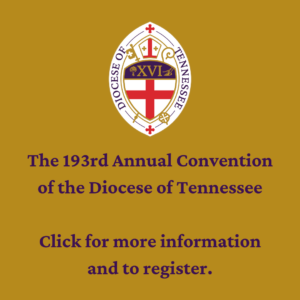
“Who can ascend the hill of the Lord? * and who can stand in his holy place?” (Ps. 24:3).
There are two movements in our psalm today, for All Saints’ Day; two processions from one place to another. The first is the movement of the worshipper to God. The Psalmist asks, “Who can ascend the hill of the Lord? * and who can stand in his holy place?”(Ps. 24:3). The “holy place” is the temple in Jerusalem, the place where God promised to hear the prayers of his servants. This was the house that King Solomon built: as the work is completed he prays, “The Lord has said that he would dwell in thick darkness. I have built you an exalted house, a place for you to dwell in forever” (1 Kgs 8:12-13). The temple was built upon a hilltop in Jerusalem, so the worshippers are invited to “go up” into the presence of the Lord: to the place where God makes a dwelling or resting-place upon the earth (Ps. 132:7-8).
So who can ascend the hill of the Lord? “Those who have clean hands and a pure heart, * who have not pledged themselves to falsehood, nor sworn by what is a fraud” (Ps. 24:4). The worshippers had to prepare themselves in order to enter into the presence of the Lord. When the People of Israel approached the dwelling place of God on Mount Sinai, they had to purify themselves. Clean hands and a pure heart were required for the worshippers to move from where they were to where they needed to be.
This was true in ancient Israel, but also true for Christians today. We seek to enter into the presence of God, and that means we too need to move from where we are to where we need to be. It means we need to make the transition from being sinners to being saints. When St. Paul wrote his letters to the early Christians, he told them that they were “called to be saints” (1 Cor. 1:2): that is, to be the holy People of God.
As he says in the First Letter to the Corinthians, they were already “sanctified in Christ Jesus” (1 Cor. 1:2). But there was still work to be done, a distance to be covered. St. Paul writes in the Letter to the Romans that Christians were to present their bodies “as a living sacrifice” (Rom. 12:1): to offer to God all that they had and all that they were. “Do not be conformed to this world, but be transformed by the renewing of your minds” (Rom. 12:2). Being a Christian calls for a whole different way of living and thinking. It requires transformation. If we are called to be saints, then we will need to be different people. If we’re going to enter the kingdom of God, we will need to be transformed.
Our reading from Revelation gives us a picture of the new world of the kingdom. “I saw a new heaven and a new earth; for the first heaven and the first earth had passed away” (Rev. 21:1). Then the reading goes on, “See, the home of God is among mortals. He will dwell with them as their God; they will be his peoples, and God himself will be with them” (Rev. 21:3). In the kingdom, the saints will be in the presence of God, and will shine with God’s glory. Remember, St. Paul tells us that we are “called to be saints” (1 Cor. 1:2).
So we are called to move from where we are to where we need to be. That brings us to the second movement in our psalm today: the movement of God to the worshipper. “Lift up your heads, O gates; lift them high, O everlasting doors; * and the King of glory shall come in” (Ps. 24:7). Once again, the gates are the gates of the temple in Jerusalem; but now, the psalm calls for God to enter the temple, to pass through the gates that lead to the sanctuary. God needs to move, to come to dwell with his People. Entering into the presence of the Lord is not something the worshippers can do on their own. God has to take the initiative.
Again, this is true for all of us. It says in our reading from Revelation, “And I saw the holy city, the new Jerusalem, coming down out of heaven from God, prepared as a bride adorned for her husband” (Rev. 21:2). The kingdom, the new Jerusalem, comes from God; we cannot move from where we are to where we need to be unless God takes the initiative. God has to move first. We need God’s grace, his power and presence in our lives, in order to enter the kingdom. We need God’s grace in order to answer the call to be saints.
Our confirmands are showing us the way today. They are answering the call to be saints; but in order to be saints they need God’s help. Today they will renew their commitment to God; but we will also pray for them that they will be able to answer the call. We will also lay hands upon them, praying that they may receive the gift of the Holy Spirit, empowering them for God’s service. The Holy Spirit will dwell within them. God will give all of us the grace to move from where we are to where we need to be.